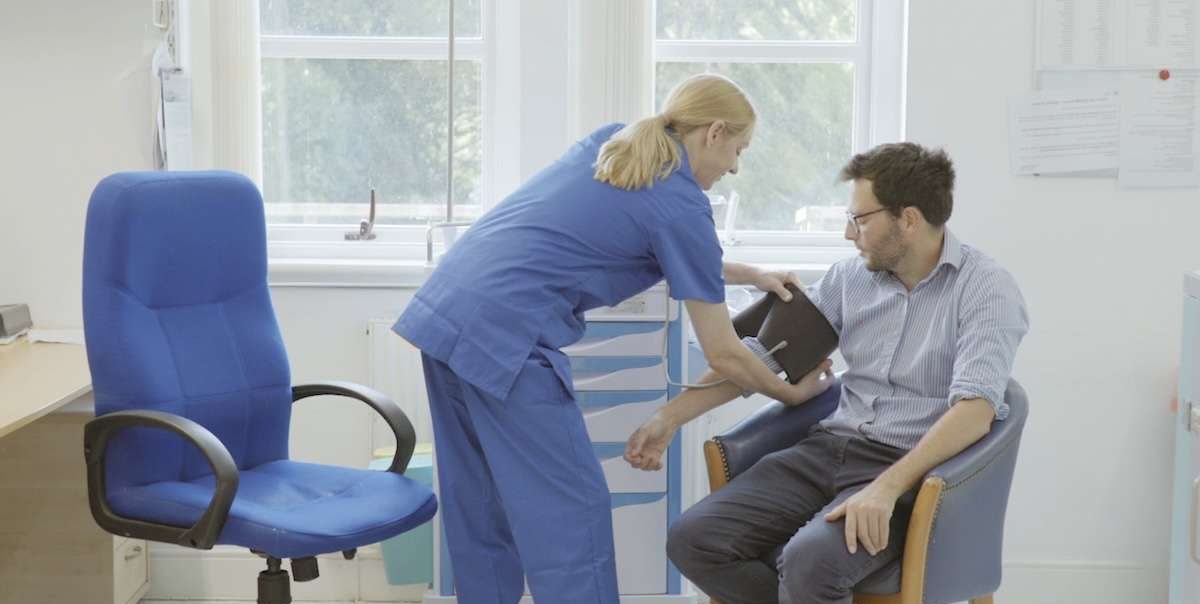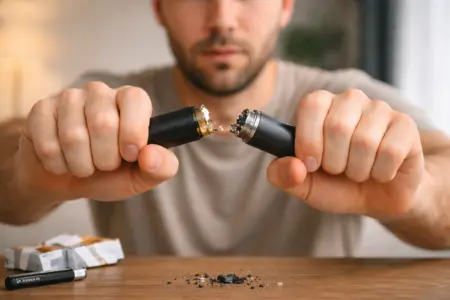
Private Rehab for Complex Drug Addiction
At Castle Craig, we offer residential polysubstance addiction rehabilitation treatment designed for people using multiple substances at once or over time. Our clinical team is highly experienced in managing the complex interactions between different drugs, tailoring detox and therapy plans to address both the physical and psychological challenges of polysubstance use disorder. Set within a private and therapeutic countryside environment, we combine medical expertise with compassionate care to support sustainable recovery from mixed substance dependence.
If you or a loved one is struggling with polysubstance addiction or mixed drug use, we are ready to help. Call 01721 546 263 today to find out more about our residential polysubstance rehab treatment in the tranquil Scottish Borders.
What is Polysubstance Use Disorder?
Polysubstance use disorder is a condition where a person regularly consumes more than one harmful substance, either at the same time or within a short period, leading to dependence or addiction. This can include alcohol, prescription drugs and illicit substances.
In the UK, a common example is mixing alcohol with other drugs, which can heighten intoxication but also increase the risk of harm, overdose and unpredictable effects. People may combine alcohol with prescription sedatives, stimulants or recreational drugs, often without understanding the dangerous interactions that can occur.
What is Polydrug Use Disorder?
Polydrug use disorder refers to the repeated use of more than one drug in combination, often to enhance effects, manage side effects, or replace the effects of one substance with another. This can lead to complex patterns of drug dependence.
In the UK, some of the most common combinations include cocaine with MDMA, cannabis with prescription opioids or mixing stimulants with sedatives. Cocaine, in particular, is frequently taken with alcohol or benzodiazepines, creating both physical risks and a strong cycle of addiction that can be challenging to treat.

Start Your Recovery at an Inpatient Rehab
What is a Polysubstance Rehab Centre?
A polysubstance rehab centre is a specialist treatment facility that supports people struggling with dependence on more than one substance at a time. Mixed substance addiction centres in the UK provide integrated care designed to address the complex interactions between multiple addictions.
In a polysubstance rehab programme, drug and alcohol addiction treatment is carefully structured to manage different withdrawal timelines, potential drug interactions and co-occurring mental health conditions. This approach ensures that both the physical and psychological aspects of combined drug taking are addressed together, creating a more effective and sustainable path to sobriety.
Free Polysubstance Addiction Assessment
Castle Craig offers free polysubstance addiction assessments as part of our admissions process, giving you the opportunity to speak confidentially with an experienced addiction specialist before beginning mixed drug rehab treatment.
Following the free assessment, Castle Craig can design a tailored addiction treatment plan that takes into account the specific drugs involved, their interactions and your personal health history. Call 01721 546 263 to arrange your free consultation.
Questions About Polysubstance Rehab?
Contact us to discuss your treatment needs with a licensed clinician.
Common Examples of Polysubstance Misuse and Dependence in the UK
Polysubstance misuse often involves alcohol combined with other substances, which can increase both short- and long-term risks. Below are some of the more common combinations seen in the UK, along with the potential dangers and patterns of use associated with each.
-
Mixing Alcohol and Cocaine During Social or Recreational Use
Alcohol and cocaine are frequently used together in nightlife settings. The stimulant effects of cocaine can mask alcohol intoxication, leading individuals to drink more than they realise, which heightens the risk of alcohol poisoning.
This combination produces a toxic chemical called cocaethylene in the liver, which can be more damaging to the heart and liver than either drug alone. Regular combined use significantly increases the risk of cardiovascular complications, risky behaviour and long-term dependency on both substances.
-
Combining Alcohol and Cannabis in Regular Weekend Use Patterns
Some people consume alcohol and cannabis together during evenings or weekends, often in social settings. Cannabis may be used to counteract alcohol-related anxiety or as a way to ‘wind down’ after drinking.
However, mixing the two can impair judgement, reduce coordination and intensify drowsiness or nausea. Over time, repeated combined use of alcohol and cannabis can lead to tolerance and dependency, particularly when both substances are consumed heavily or regularly.
-
Alcohol and Benzodiazepines Taken Together for Relaxation or Sleep
Alcohol combined with benzodiazepines such as diazepam or temazepam can intensify sedative effects. This may occur in individuals misusing prescription medication or taking it without medical supervision.
This mixture can dangerously depress breathing and impair cognitive function. Long-term combined use increases the risk of developing cross-dependence, where withdrawal from one substance worsens withdrawal from the other.
-
Using Alcohol and Ketamine in Club or Party Settings
Alcohol and ketamine are sometimes taken together in nightlife or party environments. The sedative and dissociative effects of ketamine can be intensified by alcohol, leading to unpredictable and sometimes risky behaviour.
Both substances depress the central nervous system, so using them together increases the likelihood of accidents, blackouts or injury. Over time, regular combined use can contribute to both physical harm and psychological dependence.
-
Mixing Alcohol and MDMA During Festivals or Nights Out
Alcohol and MDMA are often combined at festivals, clubs and large events. Some believe alcohol helps ‘take the edge off’ ecstasy’s stimulating effects, but this pairing increases dehydration and overheating risks.
Because MDMA impacts the body’s ability to regulate temperature, adding alcohol raises the danger of heatstroke and other health emergencies. Chronic mixing of ecstasy and alcohol can also strain the liver and cardiovascular system.
-
Combining Alcohol & Prescription Painkillers (Codeine or Tramadol)
Mixing alcohol with opioid-based prescription painkillers such as codeine or tramadol can be dangerous. Both substances depress the nervous system, increasing the risk of respiratory depression and overdose.
Regular misuse of alcohol and painkillers can quickly lead to dependence on one or both substances. Stopping suddenly without medical supervision can cause severe polysubstance withdrawal symptoms and requires a complex substance use treatment plan.
-
Alcohol Mixed with Sleep Aids or Anti-Anxiety Medications
Alcohol and sedative-hypnotic medications, including zopiclone or certain anti-anxiety drugs, can both cause drowsiness and slow breathing. Taking them together can magnify these effects to dangerous levels.
Prolonged misuse of alcohol and anxiety medication increases the likelihood of developing tolerance, requiring higher doses for the same effects, which in turn raises overdose risk. Recovery from combined dependence often requires medically managed withdrawal.
-
Multiple Substances Involving Alcohol & Over-the-Counter Medicine
Some people mix alcohol with over-the-counter medicines such as antihistamines, cough syrup or cold remedies. This may happen intentionally to enhance sedative effects or unintentionally due to a lack of awareness.
The combination of alcohol and non-prescription medications can cause dizziness, slowed reaction times and dangerous interactions. Long-term patterns of mixed use can harm the liver, kidneys and cardiovascular health, even when the over-the-counter medicine seems harmless on its own.
Polysubstance Addiction Treatment Centre Near Me
If you or a loved one is living with polysubstance addiction, the first step towards recovery is finding a treatment provider who understands the unique challenges of combined substance use. Below are some examples of how to locate appropriate support and specialist rehab services near you.

Contact Castle Craig Polysubstance Rehab
Castle Craig is located near West Linton, Edinburgh, United Kingdom, EH46 7DH, in the peaceful Scottish Borders countryside. Our estate offers space, privacy and natural surroundings that help patients focus on recovery away from day-to-day distractions.
Find Us
01721 546 263
info@castlecraig.co.uk
Castle Craig,
West Linton, Edinburgh, United Kingdom, EH46 7DH
To learn more about our evidence-based treatment for prescription drug addiction and multiple substance use, call 01721 546 263 and speak to our admissions team in complete confidence.
-
How to Find Polysubstance Addiction Treatment Near You
Finding the right rehabilitation facility for treating mixed alcohol or drug addiction starts with thorough research and knowing where to look. Here are some steps to help guide your search:
- Search Online for Services Treating Multiple or Combined Substance Use: Use terms such as “polysubstance addiction rehab near me” or “rehab for mixed drug and alcohol use UK” to narrow down your choices.
- Use NHS Directories or Ask Your GP for Help with Complex Substance Use: Healthcare professionals can recommend polysubstance rehab services that address both alcohol and drug dependencies together.
- Contact CQC-registered Private Rehab Clinics Experienced in Non-single Substance Dependency: This helps ensure you are speaking with a facility held to recognised quality and safety standards for complex mixed intoxicant use cases.
- Call National Helplines like FRANK for Support with Concurrent Drug and Alcohol Use: FRANK can provide free, confidential advice and signpost you to reputable addiction recovery services.
- Check Reviews of Clinics Specialising in Mixed Substance Use Recovery Programmes: Feedback from past clients can give insight into combined drug treatment quality and long-term outcomes.
Find Out About Polysubstance Dependence Rehab
Castle Craig offers free alcohol and drug addiction assessments to help us understand your situation and determine the most effective way to support your recovery from polysubstance misuse. Our team will listen without judgement and create a plan that addresses your needs from the very start.
We recognise the complexities that come with developing a mixed dependency on drugs and/or alcohol. At Castle Craig, we approach each case with compassion, exploring the underlying causes and creating a treatment plan designed to guide you towards long-term recovery. Call 01721 546 263 to speak with us today.
Free Drug and Alcohol Addiction Assessment
Our assessments can evaluate dependencies on multiple substances.

Multiple Substance Addiction Rehab Related Guides
Alcohol Rehab | Drug Rehab | Adderall | Amphetamine | Ativan (Lorazepam) | Benzodiazepines | Buprenorphine | Cannabis | Clonazepam | Cocaine | Codeine | Crystal Meth | Ecstasy (MDMA) | Fentanyl | Heroin | Hydrocodone | Ketamine | Kratom | Morphine | Opioids | Oxycodone | OxyContin | Percocet | Tramadol | Valium | Xanax
Common Examples of Polydrug Misuse and Dependence in the UK
Polydrug misuse involves the intentional or unintentional use of two or more drugs in combination, often leading to unpredictable effects and an increased risk of harm. In the UK, this behaviour is seen across different social settings and can involve a wide range of substances, both legal and illegal. Below are some common examples.
-
Heroin & Benzos Combined to Intensify Sedative/Depressant Effects
Mixing heroin with benzodiazepines can dangerously enhance sedation, slow breathing, and raise the risk of overdose. The depressant effects of both substances combine, creating a heightened sense of relaxation but also increasing the danger of respiratory failure.
This combination is often used by individuals seeking to boost the sedative effects of heroin, particularly during periods of high tolerance. However, the overlap in how these drugs affect the central nervous system makes the mixture particularly life-threatening, even in smaller doses.
-
Cocaine & Ketamine Used Together in Club or Party Environments
Cocaine’s stimulant properties are sometimes mixed with ketamine’s dissociative effects to create a unique, altered state of alertness and detachment. Users may perceive this as “balancing the high”, but it can cause dangerous cardiovascular strain.
In UK nightlife settings, this combination has been linked to erratic behaviour, poor coordination and increased injury risk. The opposing stimulant and depressant effects of mixing cocaine and ketamine can also place significant stress on the heart, raising the potential for sudden health crises.
-
Opioids and Pregabalin Taken for Enhanced Euphoric Sensations
Prescription painkillers like codeine or oxycodone are sometimes mixed with pregabalin to heighten feelings of euphoria and relaxation. This combination can lead to severe drowsiness, confusion, and respiratory depression.
Pregabalin is increasingly misused in the UK and is often obtained illicitly to amplify the effects of opioids. The overlap in sedative properties can quickly escalate the risk of fatal overdose, especially when alcohol is also involved.
-
Cannabis & MDMA Commonly Mixed in Social or Nightlife Settings
Some people use cannabis to prolong or intensify the effects of MDMA during festivals or clubbing. The pairing can lead to heightened sensory experiences but also trigger paranoia, anxiety, or impaired judgement.
While both substances are popular in UK social scenes, the unpredictable mental health effects of cannabis combined with the stimulating properties of MDMA can increase the likelihood of panic attacks or poor decision-making in risky environments.
-
Cocaine and Heroin Used Together, Referred to as “Speedballing”
Speedballing combines the rush of cocaine with the sedation of heroin, creating a dangerous cycle of stimulation and depression in the body. The high can be intense but is extremely short-lived.
This pattern of use is associated with a high risk of overdose, as the body may not process the changes in heart rate and breathing quickly enough. In the UK, this is often seen among long-term drug users in unstable living conditions.
-
Ketamine and MDMA Taken During Festivals or Dance Events
Combining ketamine with MDMA (ecstasy) can produce a euphoric yet detached state, altering perception and social interaction. However, the mix can lead to dehydration, overheating and cognitive confusion.
UK festival culture has reported frequent cases of this pairing, with users underestimating the strain on their bodies from prolonged dancing, poor hydration, and the unpredictable effects of the drugs when used together.
-
Cocaine & Methadone Combined During Unstable Recovery Periods
People undergoing methadone treatment for opioid dependence may relapse into cocaine use. This mix can lead to severe strain on the cardiovascular system and unpredictable mood swings.
Methadone’s depressant effects may mask some stimulant symptoms, which can cause individuals to underestimate how much cocaine they are taking. This combination can disrupt recovery progress and increase the risk of overdose.
-
Crack Cocaine & Benzodiazepines Used in Repetitive Binge Patterns
The intense, short-lived high from crack cocaine is sometimes followed by benzodiazepine use to reduce the stimulant comedown. This cycle can repeat over long sessions, leading to dangerous exhaustion and heart strain.
In the UK, this pattern is often seen in binge-use environments where people stay awake for extended periods. Over time, the physical and psychological toll can lead to severe dependency on both substances.
How Much Does Inpatient Polysubstance Rehab Cost in the UK?
In the UK, the cost of inpatient polysubstance rehab can range from approximately £650 to £1,500 per day. For a full month of mixed drug addiction treatment, prices typically fall between £18,000 and £40,000 or more, depending on the facility, programme type and level of care provided.
Rehab costs can vary based on the length of your treatment programme, the complexity of your needs and whether you choose private or shared accommodation. Contact Castle Craig on 01721 546 263 for transparent, all-inclusive pricing details for our residential polydrug addiction treatment plans.
Does Private Health Insurance Cover Polysubstance Addiction Treatment?
Private health insurance may cover polysubstance addiction treatment, but this depends on your provider, policy terms and level of coverage. It is important to review your policy carefully or contact your insurer directly to confirm what is included.
If you are covered and authorised for treatment at our facility, Castle Craig accepts private health insurance from many major providers. Contact us to discuss your options and learn more about our insurance-covered polysubstance rehab.

Recovery Can Start Today
If you or a loved one is struggling with polysubstance addiction, compassionate and confidential help is only a phone call away. Our team is here to listen, understand any complex needs and guide you towards a treatment plan that supports lasting recovery.
Free & Confidential Polydrug Assessment
Compassionate, expertly delivered evidence-based practices and a patient-centred approach are at the heart of our treatment model. Request a call-back from one of our professionals on any day of the week.
-
Statistics on Polysubstance Misuse in the UK
- A UK clinical report notes that among those misusing prescription-only painkillers, 25% also used another drug in the past year, suggesting a significant overlap in substance misuse behaviours.
- Among individuals receiving treatment in secure settings, approximately 20% were treated for both non-opiate drugs and alcohol, highlighting notable levels of concurrent alcohol and drug misuse.
- The Crime Survey for England and Wales estimates that 9.5% of adults aged 16–59 (around 3.1 million people) and 17.6% of those aged 16–24 reported using any drug in the past year, indicative of widespread multi-substance exposure.
- A recent meta-review of comorbid substance use disorders found that 30.5% were diagnosed with cocaine use disorder, while 27.1% had alcohol use disorder, underscoring the prevalence of co-occurring substance dependencies.
- In England, the number of adults starting treatment with both non-opiate and alcohol problems increased by 4%, indicating a rise in mixed substance use requiring clinical intervention.

